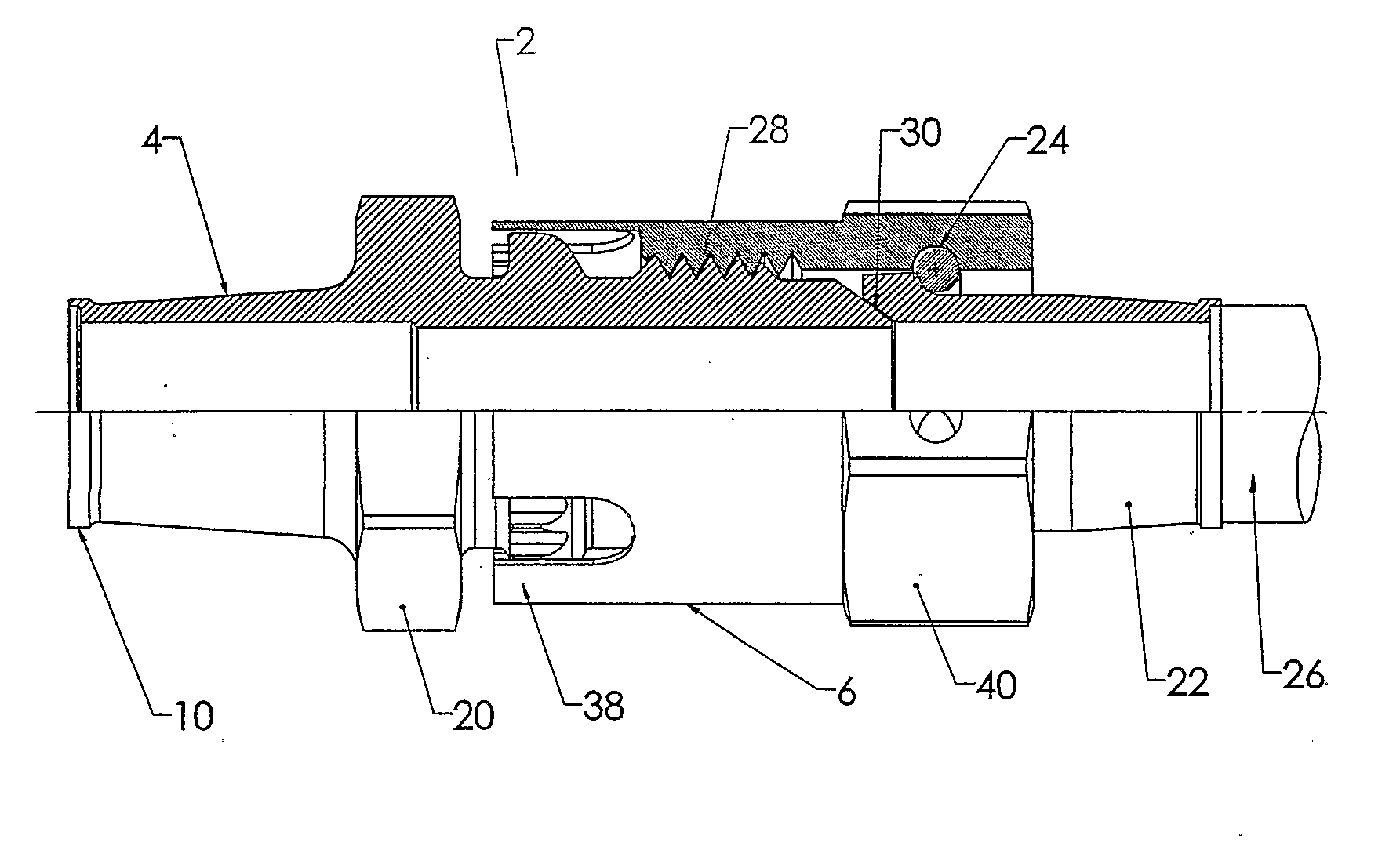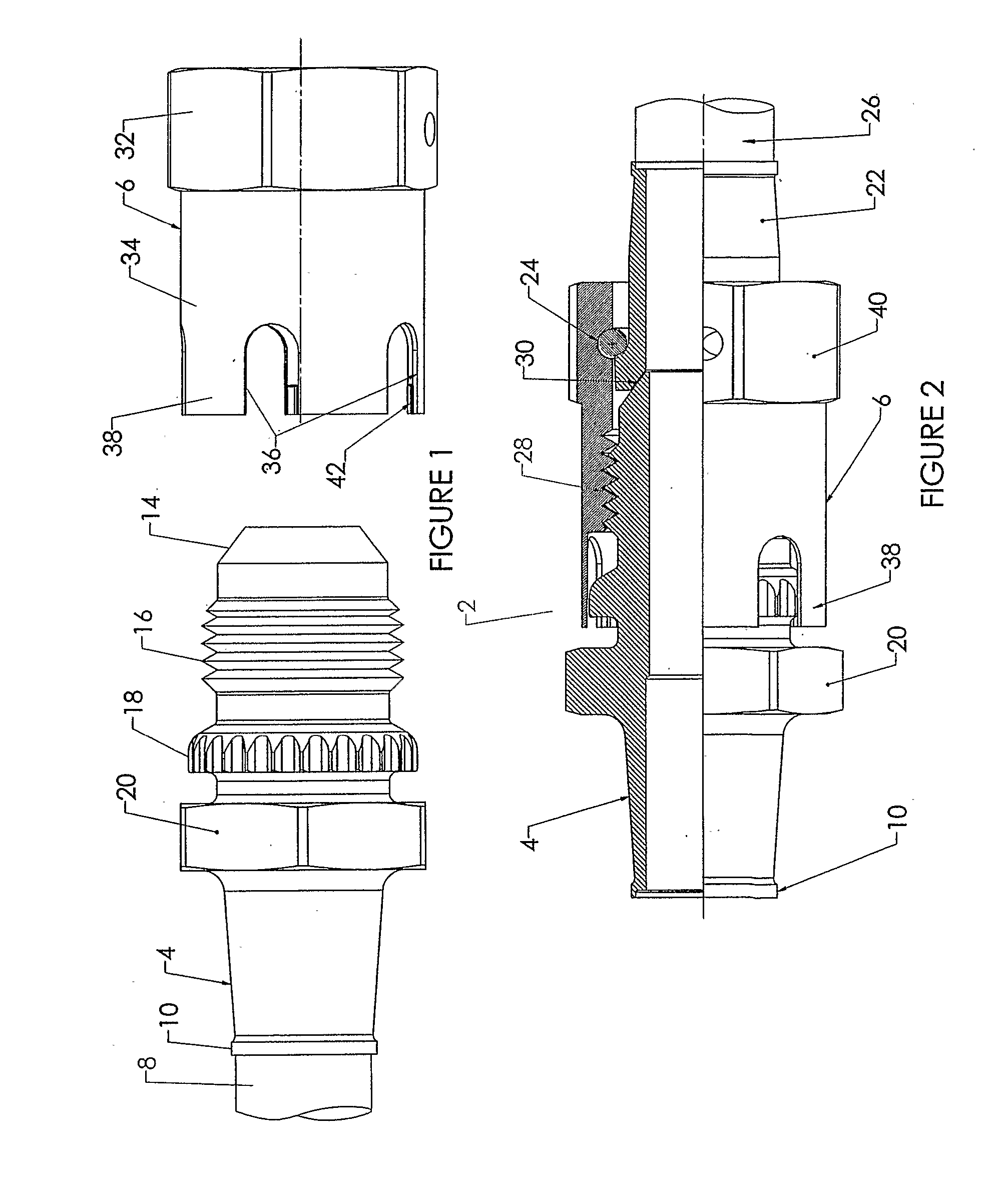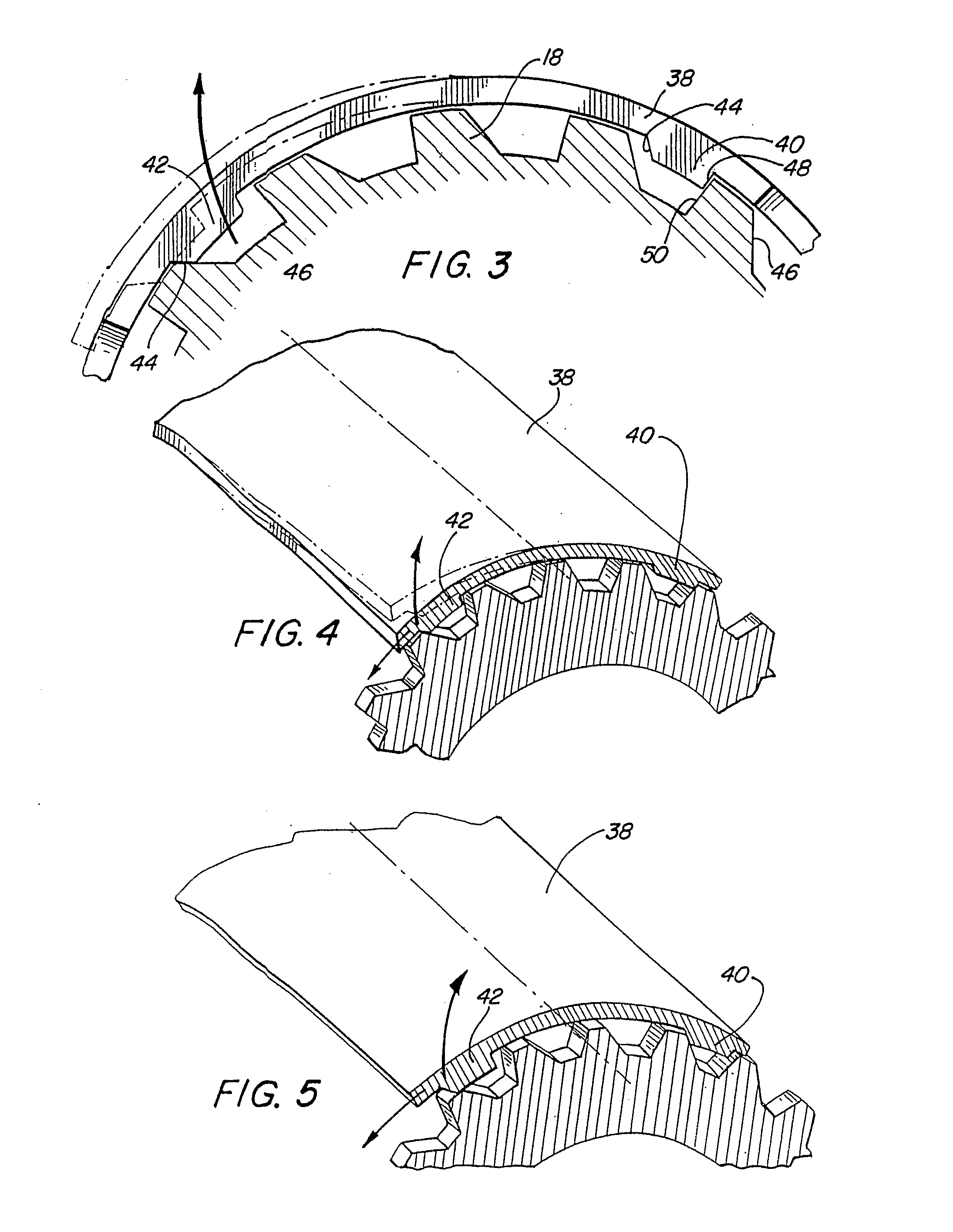Fluid Coupling Assembly with Integral Retention Mechanism
a technology of integral retention mechanism and coupling assembly, which is applied in the direction of pipe joints, pipe elements, engine seals, etc., can solve the problems of adding additional problems, and achieve the effect of reducing the possibility of foreign object debris and damage, and facilitating the mating of teeth
- Summary
- Abstract
- Description
- Claims
- Application Information
AI Technical Summary
Benefits of technology
Problems solved by technology
Method used
Image
Examples
first embodiment
[0043] Referring to FIG. 3, a schematic cross-sectional view is disclosed of the present invention, wherein the serrations or detents 18 are shown relative to a pair of spaced teeth 40 and 42 extending radially inward for engagement with the serrations 18. The serrations 18 are annularly arranged in a circular pattern about the exterior of the first coupling member 4, and the axial cantilevered beams 38 have inner and outer diameters that subscribe concentric circles with the respective teeth members 40 and 42 projecting radially inward from the distal ends of the cantilevered beam inner diameter to engage the circular serrations 18 in a ratchening manner as the respective teeth undulate over the circular serrations 18 during sealing engagement and disengagement modes of operation.
[0044]FIG. 4 is another perspective view disclosing the relative flex of a cantilevered beam 38 as a sloping camming surface 44 on tooth 42 engages the corresponding sloping surface 46 of the serrations. A...
second embodiment
[0046]FIG. 8 discloses a schematic cross-sectional view of the axially cantilevered beam 38, serrations 58 and plurality of teeth 60. In the second embodiment any differential force can be achieved in both coupling and de-coupling modes of operation by the slope of the teeth 18 forming the annular serration.
[0047] By manufacturing the cantilevered teeth on the second coupling member 56, so that the teeth are of a rounded or a sinusoidal configuration, the manufacturing costs are significantly lessened and foreign object debris and damage can be reduced. Thus, less wear and tear is experienced. Since the leading surface and the trailing surface of the teeth have the same slope any difference in the forces exerted during coupling and the forces exerted during de-coupling of the second embodiment will depend upon the first coupling member and the degree of slope on the initial camming face of each serration tooth and the degree of slope on the locking face on the other side of the teet...
PUM
 Login to View More
Login to View More Abstract
Description
Claims
Application Information
 Login to View More
Login to View More - R&D
- Intellectual Property
- Life Sciences
- Materials
- Tech Scout
- Unparalleled Data Quality
- Higher Quality Content
- 60% Fewer Hallucinations
Browse by: Latest US Patents, China's latest patents, Technical Efficacy Thesaurus, Application Domain, Technology Topic, Popular Technical Reports.
© 2025 PatSnap. All rights reserved.Legal|Privacy policy|Modern Slavery Act Transparency Statement|Sitemap|About US| Contact US: help@patsnap.com



